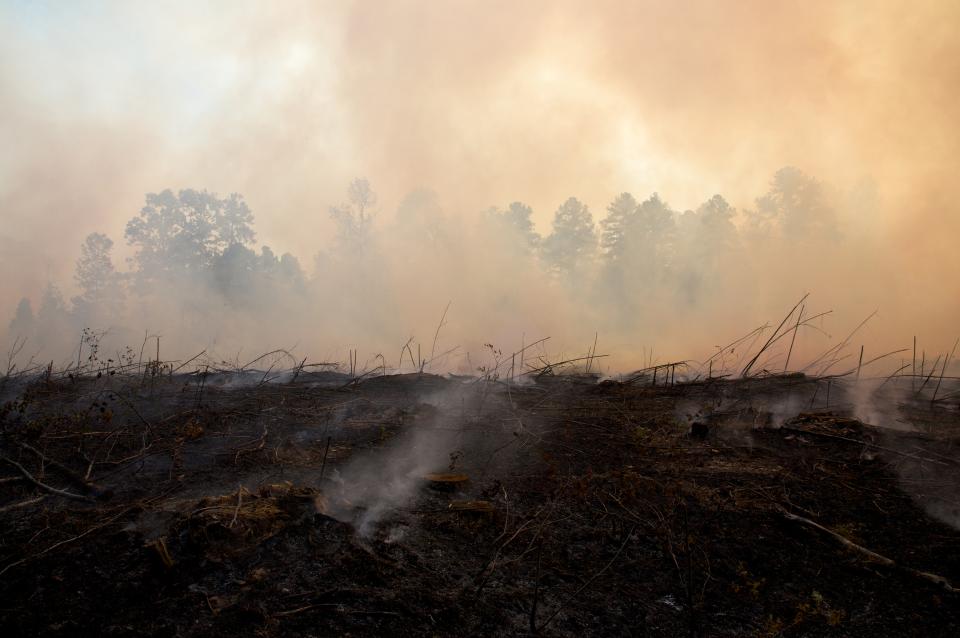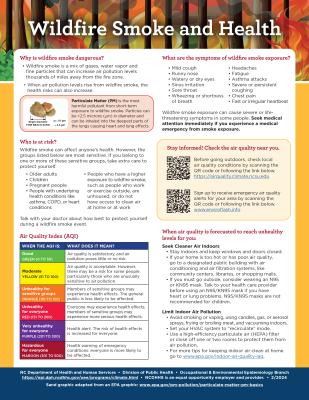North Carolina faces more wildfires
Wildfires and changes in our climate are affecting the air we breathe. Even if the fire is far away, the smoke can travel hundreds of miles and make the air unhealthy.
In North Carolina, wildfires are usually smaller than in the western U.S., but the smoke can still cause serious health problems.
Droughts, hotter weather and more flooding will continue to make air quality a concern for our state.

How to Protect Yourself from Wildfire Smoke
Stay indoors when air quality is poor:
- Keep doors and windows closed.
- Use air conditioning or go to a public building with clean, filtered air.
- Avoid activities that make indoor air worse, like smoking, burning candles or frying food.
- Use a HEPA air filter if possible.
If you must go outside:
- Limit time outdoors.
- Consider wearing an N95 or KN95 mask (not recommended for children).
- Talk with your doctor before using a mask if you have heart or lung problems.
About the Air Quality Index
The Air Quality Index (AQI) shows how clean or polluted the air is.
| When the AQI is: | It means: |
|---|---|
| Good Green (0 to 50) | Air is satisfactory. Air pollution poses little or no risk. |
| Moderate Yellow (51 to 100) | OK for most, but some people who are more sensitive to air pollution may feel effects. |
Unhealthy for sensitive groups | Unhealthy for people who are more sensitive to air pollution. Extra care needed. |
Unhealthy for everyone | Everyone may experience health effects. Sensitive groups may experience more serious health effects. |
Very unhealthy for everyone | Health alert: The risk of health effects is increased for everyone. |
Hazardous for everyone | Emergency conditions: Everyone is more likely to be affected. |
Air Pollution
What communities can do to prepare for the health effects caused by air quality

